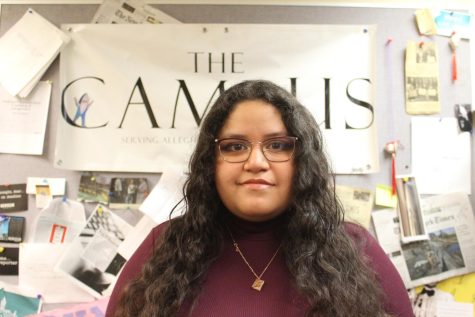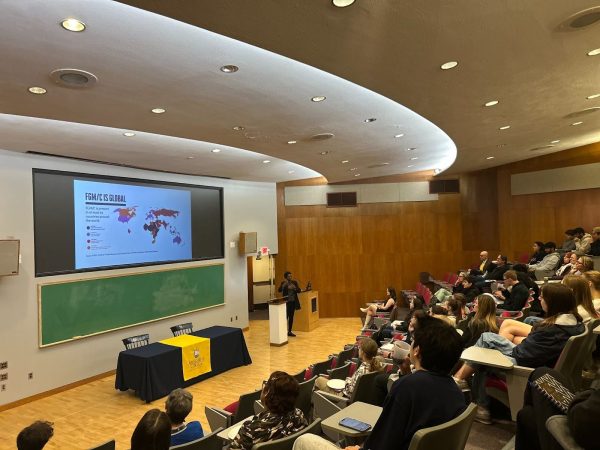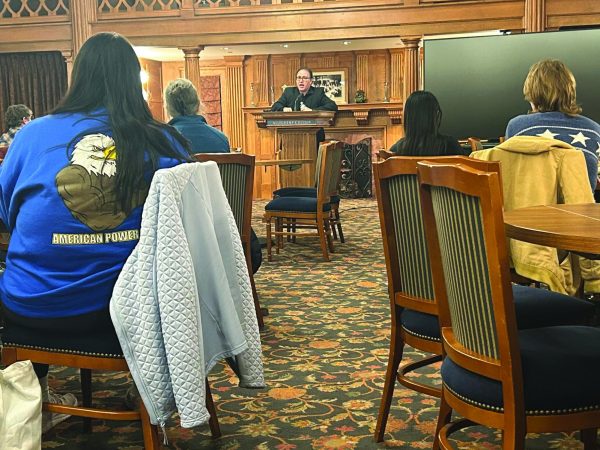Who is the Allegheny Honor Committee?
The Honor Committee is responsible for upholding academic integrity at Allegheny College. While it is a big part of maintaining honesty among students, students do not come across the committee often and have limited information about their responsibilities.
Dean for Student Success Ian Binnington is the administrative adviser to the Honor Committee. Binnington explained that potential honor code violations are reviewed by the students on the Honor Committee, who investigate the situation and make a recommendation about whether the student is responsible. Binnington added that the assignment of penalties is between himself and the involved faculty member without the involvement of students from the committee. However, the College Standards Board ultimately decides if the infraction occurred.
“I think it is actually a very powerful thing to have a peer group hold a peer group responsible,” Binnington said. “The typical student who faces an honor code violation probably waited until the last minute, procrastinated, got bad advice from a friend. I have rarely seen a student who set out to cheat their way through a class.”
According to Binnnington, typical penalties for honor code violations include grade penalties, which are assigned by the associated faculty member, and failure of the class.
“From an institutional sanction point of view we have four levels and most students are in the first two levels,” Binnington said. “Most students will be at a warning which indicates that they have done something the institution has taken notice of. Probation is more serious and means you are not in good standing with the institution, which means there are certain things that you may not be allowed to continue doing.”
Assistant Professor of Chemistry and Faculty Adviser to the Honor Committee Matt Betush described that on the faculty side of honor code violations, they have to submit a form containing information about the situation and the assignments in question.
“I would say, in my experience, students who I have suspected have done something are usually already in a precarious situation,” Betush said. “I had a case where I had two students who were not doing well and were not found responsible but we had a month or two left of class. Our low level of communication after that continued so the students weren’t coming to office hours and only communicating with me in class and lab.”
Honor Committee Chair Raegan Myers, ’23, described her experience as a student in the Honor Committee.
“I think there is a very punitive vibe around the honor committee,” Myers said. “People’s initial perspective is that we’re out to get students when in reality we are the lifeline between students and professors, and it is our job to facilitate and give students the opportunity to defend themselves.”
Since the implementation of the honor code in 1962, students have been able to vote on whether they want the system to continue, and the Honor Committee improves the honor code according to the needs of students.
According to Binnington, one of the biggest issues being discussed by the committee currently is equity.
“There is a national trend towards certain demographics of students being accused of honor code violations more frequently than others,” Binnington said. “These are most likely to be students of color but also more likely to be men.”
Myers said that currently Black men are overrepresented in their cases. Myers is currently working on drafting a proposal to the committee and to the administration to talk about ways to tackle this issue from multiple angles.
“Part of the reason why I wanted to become chair was because I wanted to have a more active role in making sure that this doesn’t happen anymore,” Myers said. “As a person of color at a predominantly white institution, I think a lot of people of color are taught socially to not stand up for themselves.”
Myers said that among the problems with the honor code policy, one of the biggest is that it is not up to date and written for modern-day students. The committee is currently in the process of revising and clarifying the code so that students understand what is expected of them.
“A lot of the content doesn’t really apply to things we have now and there isn’t a good provision about what is acceptable and not acceptable for remote learning, which is something we have to consider now,” Myers said. “Last year when we were deliberating on cases, we kept finding little loopholes in the code about citations, which means that the code is not written clearly enough.”
Despite the flaws of the honor code, Myers believes that students in the committee are really passionate about students and making sure their voices are heard.
“The goal is not to ensue guilt in other people,” Myers said. “The goal is to make sure that if you do make a mistake that you learn and move on from it.”

Evelyn Zavala is a senior from San Francisco. She is majoring in Business and minoring in Journalism in the Public Interest. This is her fourth year on...







